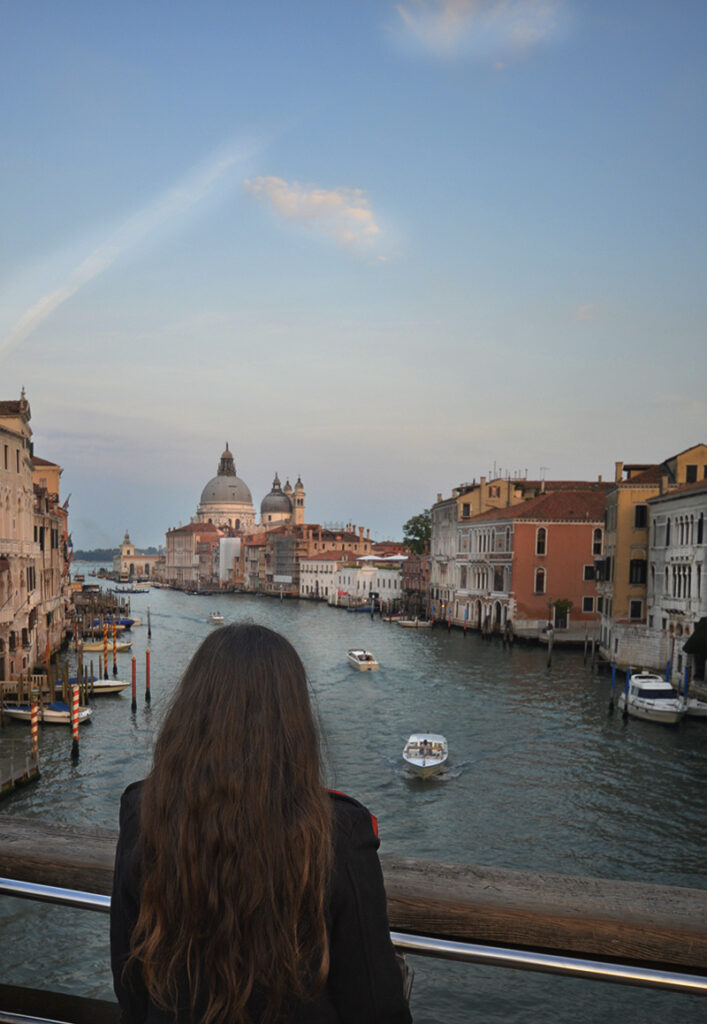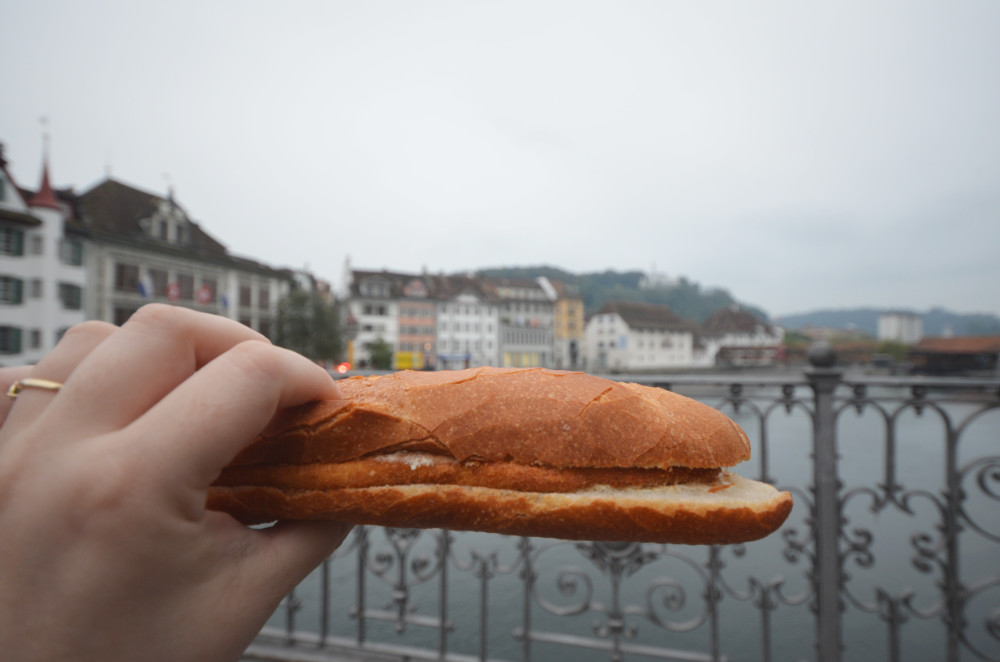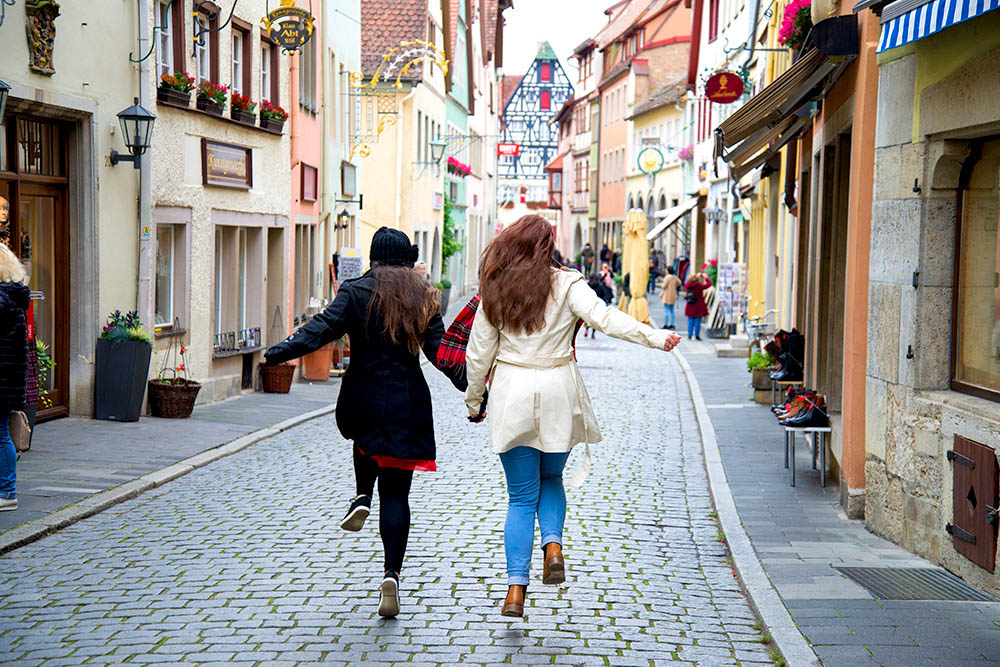Some of the links in this post are affiliate links. This means if you click on the link and purchase the item, I may receive an affiliate commission at no extra cost to you.
Europe is one of the places you have to visit in your lifetime, however with its higher prices, it can be easily have to be held off for a later trip. The reason being that it is hard to travel Europe on a budget. With that in mind, its important to try and make savings where you can, so you can travel Europe cheaply. While its never going to be as cheap as places like Asia or parts of Central America, there are definitely things you can do to lower your costs.
As someone who has spent a lot of time in Europe, I have learnt some great tips on how to reduce your costs while visiting. Some ideas include spending more time in cheaper countries, visiting attractions independently and I share my hacks for finding cheaper transport- among other things.
Read on to see my tips on how to save money while traveling in Europe.
#1 Stay in Hostels
This one is a no brainer. Hotel all across Europe are expensive, likely being the biggest expense in your budget. While hostels are also pretty expensive, they are cheaper than hotels here so are a good alternative if you need to save money. Therefore this is one of the best ways to travel Europe on a budget if you don’t mind sharing a room.
Hostels aren’t all what you imagined- a small room cramped with 16 beds. There are a lot of different types, many with smaller rooms and privacy curtains. I didn’t mind the classic style hostel room when I was younger, as it was a great way to meet people, but now I am a sucker for a privacy curtain.
Curtain open, hello travelers. Curtain closed, and I’m practically in my own private room. So, check out the options online to see if a hostel might suit your needs instead, letting you save a bit of money on accommodation.
#2 Spend More Time in Eastern Europe

To save money while traveling in Europe, another good idea is to consider spending more time in Eastern Europe and the less expensive Western European countries. Places like Poland, Hungary, and Romania offer lower prices on accommodation, food, and sightseeing compared to Western Europe.
Even within Western Europe, countries like Portugal and Spain can be more affordable than others like Switzerland or Norway. By planning to spend less time in the expensive countries, you can stretch your budget further but still get to see the sights you want.
For instance, you can try to cram more into your day in the cities of Paris and Venice, but slow down the pace in Albania as everything is cheaper. Of if you really enjoy beaches, head to (again) Albania over somewhere with the same thing in the south of France.
#3 Visit Less Destinations

Frequent travel between cities can quickly increase your transportation costs and limit your ability to take advantage of deals on accommodations. Many hotels and hostels offer lower rates for longer stays, so moving around too often means you miss out on these savings.
If you’re focused on sticking to a few key destinations rather than trying to see everything, you can save money and get better value from your lodging. By choosing to spend more time in fewer places, you can reduce transportation expenses and benefit from longer stay discounts on accommodations. This approach is budget-friendly and still allows you to experience your top must-see spots.
#4 Do Research Before Booking Transport

Using transport websites like Omio can help you save money while traveling in Europe by allowing you to compare prices across different modes of transportation, including trains, flights, ferries, and buses. With Omio, you can easily find the most affordable options and choose the best deals for your itinerary. This makes it easier to stick to your budget and find the cheapest way to get from one place to another.
Additionally, consider using transport passes like Eurail if you plan to travel extensively by train. Eurail passes offer a flexible way to explore multiple countries and can be more economical than buying individual tickets for each journey. By combining these resources, you can optimize your travel plans, reduce costs, and enjoy a more budget-friendly European adventure.
Flixbus is another site that can help you find cheap bus fares, while Ryanair is known for cheap, barebones flights if you book in advance.
#5 Use Car Sharing Apps
On my first Europe trip I used one of these apps/ websites to get from Slovenia to Austria, and it was a great way to save money while traveling in Europe. Not to mention it also got me to my destination quicker. The receptionist at my hotel recommended it and while I thought it sounded a bit weird, I did it and got to Austria safely. For the life of me, I can’t remember the name of the website, but one that is highly recommended is Bla Bla Car, a car share type app.
I maybe wouldn’t recommend it to women traveling Europe solo, but if you a with a partner or friends it can be a great option to save money, or get to places where a train or bus doesn’t go directly to. This one you can’t really plan ahead for and would be best if you are flexible on your dates.
#6 Buy groceries

Buying groceries instead of eating out at restaurants is a practical way to save money while traveling in Europe. Grocery stores often offer fresh, local foods at a fraction of the cost of dining out. You can make meals in your accommodation if you have access to a fridge, which cuts down on food expenses.
Additionally, buying groceries allows you to avoid the higher prices that come with eating at tourist spots and restaurants. Preparing your own meals gives you more control over your budget and can be a fun way to experience local cuisine in a different way. So you’re still technically eating European food, you’re just making it yourself.
Buying groceries is a particularly great option if trying to save money while backpacking in Europe, as you’ll likely be staying in hostels with a shared kitchen anyway. Bonus, it’ll also give you a chance to meet more people.
#7 Limit Restaurant Meals

Another way to travel Europe on a budget is the cut down the amount of times you visit restaurants. One thing I like to do is to have one or two meals a day where I buy something cheap from the supermarket, instead of eating at a restaurant.
This is a great compromise if eating out is a big priority, but you’re on a smaller budget. This is a great compromise if you don’t want to go full grocery, as you get to save a bit but still don’t have to cook everyday.
#8 Book ahead
Booking hotels, trains, and tours ahead of time can help you save money and avoid last-minute price hikes. When you book early, you often find lower prices and more availability, which can lead to significant savings. This is especially true for popular destinations and travel times when prices tend to rise as availability decreases.
Additionally, planning in advance allows you to compare options and secure the best deals for your trip. Early booking also helps in securing reservations for high-demand attractions or accommodations, ensuring that you get the experiences you want without paying premium prices or facing disappointment.
#9 Walk

Walking instead of taking a taxi or public transport within a city can help you save money and explore more. Many cities are compact and walkable, allowing you to easily reach different sites on foot without spending extra on buses or trams. This can significantly cut down on your transportation costs, as while the amounts are small, they add up if you are using public transport everyday.
Walking also lets you experience a city in a more personal way, as you’ll pass by local shops, restaurants, and neighborhoods that you might miss when traveling by public transport or a taxi. It’s a budget-friendly option that also contributes to a richer travel experience, helping you discover hidden gems and unique aspects of the city.
If a place is too far to walk to, use the public transport option instead of a taxi at least. As long as its not too difficult.
#10 Couchsurfing
Trying Couchsurfing can be an effective way to save on accommodation costs while traveling in Europe. This website connects travelers with locals who offer a free place to stay. By using Couchsurfing, you can significantly reduce your lodging expenses and make your trip more affordable.
In addition to saving money, Couchsurfing provides an opportunity to meet and interact with locals. Its a great way to meet new people, and also get recommendations for local attractions and restaurants.
I have never used the staying with a person option, but I have used couchsurfing to make friends before when I was on exchange. I think couchsurfing has gotten less visibility over the years with the rise of Airbnb, but its still a good option.
#11 Travel in the Off Season

Traveling in the off-season is a smart way to save money while exploring Europe. During this time, which is typically outside the summer months and major holidays, you’ll find lower prices on flights, accommodations, and attractions. Popular sights and experiences are less crowded, making for a more relaxed experience and easier access to key sites without long waits.
In addition to cost savings, traveling off-season often means better deals on activities and tours that may be more expensive during peak periods. Hotels and airlines frequently offer discounts to attract visitors when demand is lower. By planning your trip for the shoulder seasons, such as spring or fall, you can enjoy Europe’s rich culture and beautiful scenery while keeping your budget intact.
You could also save some more money by traveling in winter, although prices will go up again around Christmas. Just make sure you don’t visit around a popular event such as Oktoberfest if you want to save money- prices rise massively around this time.
#12 Plan Out Your Expenses in a Budget
Being a type A nightmare myself, there is nothing I love more than planning a budget. I open my trusty excel (jokes, its never not open) and I make a detailed budget planning out costs of hotels, transport and sightseeing before my trip.
I find doing research before hand helps me know exactly how much I should spend, and gives me time to evaluate cheaper options. With this budget, I can keep myself on track once I’m actually traveling. So I wont go days without realising I’m spending too much on food because I’ve always set out my daily average to stick to in the budget.
This has been invaluable for me to stop overspending so I would strongly recommend making one (and take it with) to help reign in your spending.
#13 Choose Free or Cheaper Tours

Trying to find free or cheaper tours can help you explore European cities without spending a lot of money. Many cities offer free walking tours led by knowledgeable guides who work for tips, allowing you to learn about the local history and highlights without a hefty price tag. These tours can be a great way to join a tour on a budget.
Tours normally have a bit of discount if you book far enough in advance, so to find cheaper tours, it’s a good idea to start looking for them early (eg3-6 months in advance). For higher priced, longer or more popular tours, you’ll likely find bargains 6-12 months before your travels. Sometimes longer tours will also have last minute discounts, as they are trying to fill their spots. Although I haven’t really seen this be the case with shorter tours.
#14 Avoid the Single Surcharge

Traveling with a partner or friends can help you save money by avoiding single supplements often charged for solo travelers. Many hotels and tour operators charge the same for a single person as 2 guests, which can significantly increase your costs. By sharing a room or tour with others, you split the expenses, making it more affordable.
If you’re traveling solo and you make friends along the way, you can ask if they want to split a twin bed room. Although make sure they seem trustworthy first. I have done this on my travels and have yet to be burned by it.
In addition, traveling in a group can provide opportunities for group discounts on accommodations, transportation, and activities. Many services offer lower rates for groups, which can reduce overall costs compared to traveling alone. This can be especially helpful when hiring a boat, as even without a discount, if the boat has a set price then you pay less by having more guests with you.
#15 Do Things Independently

A great way to travel Europe on a budget is to do things independently rather than hop on a tour. Now you can’t do this with everything, but there are many things you can do and see tour-less. I used this option a lot when I was younger, where I didn’t care so much about getting information about a place or mind having to figure out my own transport.
For instance, if you don’t mind organising organising the train yourself, you can easily visit mountain villages like Lauterbrunnen[AF1] by yourself. You can walk around by yourself, including the long walk to the waterfall. You wont get the commentary or direction of a guide, but you can visit independently while saving money.
#16 Other Ideas
I always get a bit disappointed when I read these articles and they’re full of things like volunteer on a farm for 1 month to get free accommodation. I just wouldn’t do that if my aim is to actual see the sights. However, I can totally understand that some people may want to stick to one spot, so if you want to spend a longer time in one place you could consider something like Woofing, Worldpackers (work exchange) or housesitting.
You’ll be staying in the one place for longer, so would be a good option if you’re more about soaking in the culture rather than seeing specific sights.
Another option along these lines is getting a working holiday visa in the UK. This option is open to Australians (not sure about another nations) and would be another good option if you don’t mind working. There are heaps of cheap flights to Europe from the UK so you would still be able to visit a few places on your time off.
Again, not something that helps you visit a lot of places, so its here at the end, but is a genuine option if you want to spend more time in one spot.
So, while it wont match up to the low prices of Asia, there still re a number of ways to reduce costs while traveling in Europe. Ideas such as putting your legs to use, spending more time in cheaper countries and booking ahead will help you travel more affordably in Europe, among other suggestions. I hope this makes your Eurotrip feel like less of a pipedream and you’ve learn a ton of ways how to save money while traveling in Europe.
Leave a Reply